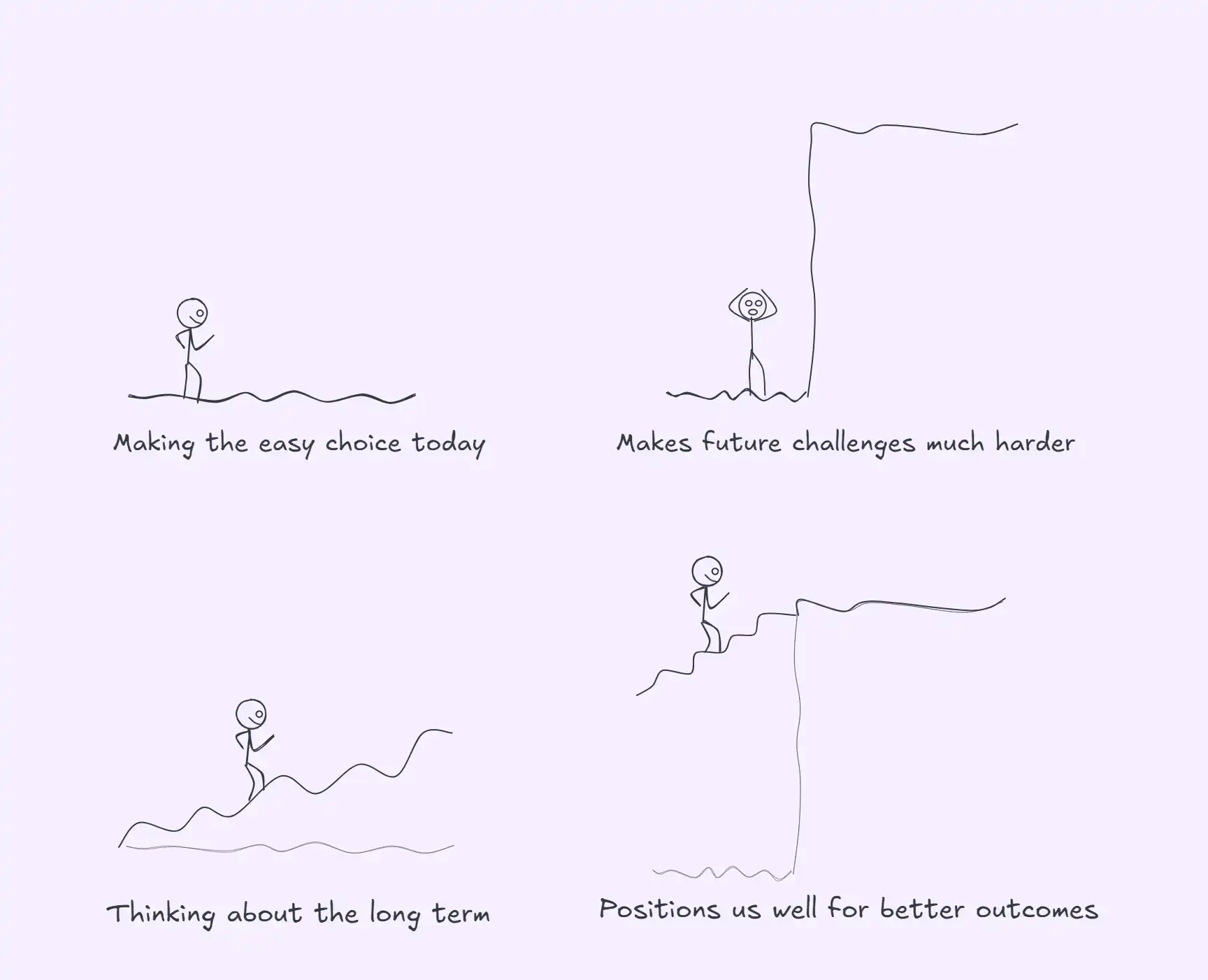Do your decisions set you up for the next move - or just help you survive this one? We often rely on mental shortcuts to get through busy days, but what if those shortcuts are quietly keeping us stuck? Learn how thinking beyond the immediate payoff can transform your decision-making and your future.

Making Choices that Compound
Decisions are complicated as it is. We are too busy, too tired or so against complexity that we tend to decide based on heuristics.
Heuristics are automated decision rules, like "more is always better" or "free beats quality".
The good thing about heuristics is that in many cases they work just fine, that's how they became automatic. Bad rules that lead to bad outcomes aren't automated, unless...
Unless we're talking about the long term. Heuristics are great for short-term decision-making, but bad for the long term because thinking about the 8th chess move ahead is much harder than thinking about the very next one. Such complexity can't be easily translated into a simple rule, which is why it's often neglected.
For example, the prisoners' dilemma is a problem of heuristics. Each person chooses the betray to maximize their well-being, even though the overall outcome is worse for both sides.
Compare that to a repeating prisoners' dilemma where tit-for-tat (aka kindness) is the winning strategy.
The bigger the decision, the more we must abandon our heuristics, and think about positioning.
Positioning means looking beyond the current decision into the next one. It's asking ourselves what is becoming harder/impossible to do and vice versa. Which choices help me become better positioned for the future.
Classic cases of improving our positioning are physical fitness, being financially responsible, avoiding addictions or distractions, and learning and growing.
Preparing for the future might be hard and not rewarding at first, but it makes our lives so much easier. Instead of running from crisis to crisis, being forced to make bad decisions, and feeling stuck, we are always moving up.
Like leveling up in DND, we improve with time, ready to handle the scary monsters life is going to throw at us.
However, positioning isn't free. Choosing to learn a new course over resting to be "better prepared for the future job market", taking more stuff with you on camping "just in case", or investing less so you can have emergency money are all costly decisions.
Time is scarce, and each decision comes at the cost of not doing something else. So balance between improving your positioning and the alternative cost of what you're missing out.
Ask Yourself
- What decisions am I making today that can limit or expand my future options?
- Which habits or actions position me for better choices later?
- Am I optimizing for now or setting myself up for the future I want?
The Bottom line
Some decisions are important and impactful enough that we should consider their long-term effect. By doing so, we can choose the path that improves our positioning, making future problems easier or nonexistent.
Instead of running from crisis to crisis, we can be on the path that avoids them entirely.
Archimedes said: “Give me a lever long enough, and a place to stand, and I will move the earth.
Positioning, while not free, is a great multiplier that makes good decisions less costly and much more impactful.